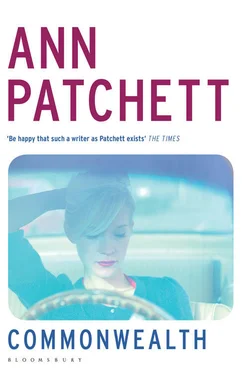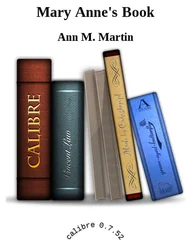As the two oldest children, Holly and Cal worked together to look after Albie and Jeanette, keeping them away from the stove and the knives when they were younger. And they looked after their mother too, maybe not in tandem, but they made an effort to lighten her load, to keep things from her whenever possible. The more Holly felt Cal’s presence in her life now, the more she knew he cared for her, that he forgave her. The better job she did at keeping her life quiet, her eyes open to the simple beauty that surrounded her, the better she was able to hear him. She didn’t hear him in any nutty way, they didn’t sit around and talk politics, it was more a pleasant feeling, easy enough to achieve at Zen-Dojo Tozan but she could even do it here, in the waiting area of the Lucerne airport. She believed that most of the human population didn’t avail themselves to their full psychic potential. They lived in a state of mental clutter, the bombardment of goods and services, information and striving. They wouldn’t be able to recognize true happiness if it were standing on their foot. It had been almost impossible to hear her brother when she was at Berkeley, at the Sumitomo Bank, or anywhere in Los Angeles, but in Switzerland, this place where he had never been, well, it was better.
Holly went back to her newspapers. She read about Broadway plays. She read a book review and an op-ed about flooding in Iowa. She read about the plight of women in Afghanistan. She finished half of her chocolate and put the other half in her purse for later. Seeing the time, she got up and went to stand with the families and the drivers holding hand-lettered signs. When she saw Teresa walking towards her — so tiny! so much older! how long had it been now? ten years? more than that? — she was flooded with love, such a huge wave, both her love and her brother’s. She held out her arms. “Oh, Mom,” Holly said.
Where to begin with the marvels? First of course was Holly, who, with her cropped black hair touched in gray and her Birkenstocks and wooly socks, was radiant. All those people packed together on the other side of security, all those people making a single, indistinguishable mass, and then, bam! Holly. She was something else entirely, no one could have missed her. When Teresa fell into her embrace it was as if they had never been parted. She had such an overwhelming memory of the nurse coming into her room the morning Holly was born, laying that perfect baby in her arms, the baby who was now this beautiful woman. Teresa kissed her neck, pressed her cheek to her daughter’s sternum. “I’m sorry you had to wait so long,” she said, not knowing if she meant the three hour delay or all the years it had taken her to get there.
“I had a nice time,” Holly said, running her hand across her mother’s head. She took the carry-on and her purse, slung them over her shoulder like they were nothing, like she could have just as easily slung Teresa over her shoulder too. She walked her straight to the restroom without asking if she had to go, and she did. This was the person Holly had always been: in charge, making decisions, being helpful without being asked. When Teresa pointed out her luggage at the baggage claim, Holly scooped it up and laughed.
“You pack like a Californian!” she said, thrilled by such a small thing. “I do, too.”
“How do Californians pack?” Teresa was laughing without getting the joke, her smile so wide she felt certain she was showing teeth that had not been seen in years.
Holly held up her mother’s black wheelie-bag. It was small and discreet, a footnote to all the giant bright-pink hard-sides reinforced with bungee-cords that circled before them. “Europeans pack like they’re never coming home. I think it has to do with the war.”
Outside the air was bright and cold despite it being the first of September. It had been ninety-six degrees when she left Los Angeles. Holly helped her on with her coat. Teresa was proud of herself for having brought the coat in the first place. At home in her living room she had put it on and then taken it off, locked the front door, gone to the taxi, gone back inside and put the coat on again. She could see the Alps in the distance from the parking lot now. She had seen them from the plane, the snow-covered peaks. Alps. She pulled the coat tighter. Who would have thought Teresa Cousins would ever see Alps?
The Zen-Dojo Tozan’s Citroën that Holly drove was more like a soup can than a car. The flimsy metal shuddered as she downshifted around the curves, the gearshift a long stick coming up from the floorboard. Back home on the 405, such a car would be crushed by the blowback from a passing SUV, but on this perilous mountain road it felt like all the other tin cans. They could bump into one another without significant harm, like people brushing past on a crowded street. No one had upped the ante in order to save themselves, built a daily tank that would obliterate the competition. They were all in this together. The guard rail that separated them from the vertiginous drop off the side of the mountain seemed similarly unprepared to save a life, but what difference did it make? They were all going to die anyway, all of them. They weren’t even at the Zen center — whatever it was called — and already Teresa felt she was getting the point. Who needed air bags? The reinforced steel-cage construction that created a barrier to the world? Teresa rolled down her window — rolled it down with a hand crank! — and breathed in the bright Swiss air.
“So beautiful,” she said. They shot into a stone tunnel cut through the side of a mountain: light then darkness then pine trees.
“Just you wait,” her daughter said.
“I have to tell you, Holly, I didn’t understand until now. I mean, I’ve been happy for you, but in the back of my mind I was always thinking, What’s wrong with Torrance? ” They drove past two shaggy mountain goats on the side of the road, their curled horns looking like crowns. No doubt they were waiting for Heidi and Grandfather to herd them back into the mountains. Teresa looked over at Holly. “Why would anyone live in Torrance?”
“There’s nothing wrong with home,” Holly said, feeling so pleased to receive her mother’s affirmation. “But it’s quieter here. It’s better for me.”
“I think about Jeanette in Brooklyn with Fodé and the boys. I think she likes all the noise, her tight little space. I think that’s what holds her together. And Albie, always picking up and going someplace else, always looking for something new. That probably works for him. He’s in New Orleans now.”
“He e-mails me sometimes,” Holly said, feeling such a sudden longing for her brother and sister, wanting them all to sit together in the same room with their mother.
“That’s good.”
“What about you?”
“What about me?” Teresa said, craning around to catch another glimpse of the view that receded behind them.
“Has staying in Torrance been good for you? Was it the right choice?”
They were driving through a forest now. The trees, their lower trunks furred with moss, got thicker and taller and started to cut into the light while ferns stretched across the forest floor. There were enormous rocks, boulders really, that looked like they’d been placed by set designers around a fast-running stream. Show me an enchanted forest! the producer must have said.
“Your father wanted me to move all of us to Virginia when he left with Beverly, so we’d be close by. I didn’t even consider it, to tell you the truth. Maybe I should have. It would have made things easier on you kids. I just couldn’t find it in myself to be that accommodating.”
“That’s the stupidest thing I ever heard,” Holly said, foolishly taking her eyes off the road for a second to stare at her mother. “I never knew he said that.”
Читать дальше
